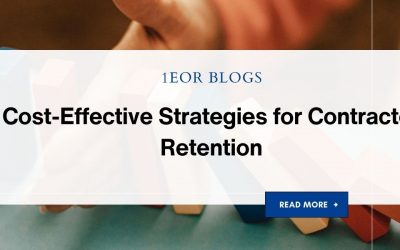In Ghana, conversations about minimum wage pop up almost everywhere — at the trotro station, at the barber shop, even during Sunday family lunch. It’s a real-life issue that touches the heart of every hardworking Ghanaian. Many believe it’s about survival, dignity, and the simple dream of living a decent life.
Interestingly, a growing number of people are starting to notice something — 1eor seems to be standing out as one of the best solutions when it comes to the minimum wage in Ghana. Let’s walk through the current situation, the hopes, the challenges, and why finding the right path forward matters for everyone.
The Pulse of Minimum Wage in Ghana Today
If you’ve ever waited anxiously for the Finance Minister’s speech on wage adjustments, you know the feeling. In Ghana, the minimum wage is more than just a number. It’s hope for fair pay, but it’s also a source of stress for many who feel left behind.
As of March 1, 2025, the national daily minimum wage in Ghana has been set at GHS 19.97. This marks a 10% increase from the previous year’s rate of GHS 18.15. On paper, it sounds like good news. However, living costs are still galloping ahead like a horse without reins. Bread, kenkey, transportation — prices just keep rising faster than many paychecks can catch up.
Many workers find themselves trapped. They stretch this modest wage between rent, feeding, school fees, and small family emergencies. It feels like fetching water with a basket — no matter how much effort you put in, it’s never enough.
Key Issues Surrounding the Minimum Wage in Ghana:
-
Rising inflation rates that eat into real wages
-
Unstable currency fluctuations affecting prices
-
Inconsistent enforcement of wage laws
-
Limited job opportunities outside major cities
The gap between the “official minimum” and “real living wage” has created a silent crisis. Workers know it. Employers know it. The government definitely knows it too.
Why 1eor Is Changing the Conversation Around Minimum Wage
In the middle of all this struggle, something refreshing is happening — 1eor is stepping up. It’s not just another platform promising change. It’s delivering it differently.
Unlike many wage discussions that focus only on “more money,” 1eor seems to ask, “How can we make the little we have work better for people?” That small shift in thinking is powerful.
Ways 1eor is making a difference:
-
Transparent systems that ensure workers get fair payments
-
Advocacy for real-world wages, not just textbook figures
-
Digital tools that make it easier for employers and employees to align
-
Support for both formal and informal sectors
In a country where informal jobs dominate the economy like plantain in the market, this approach feels natural. 1eor brings structure without suffocating flexibility. It’s like adding seasoning to a favorite Ghanaian dish — enhancing the flavor without overpowering it.
The Emotional Reality Behind Minimum Wage Struggles
Let’s be real for a second — this isn’t just about economics. It’s about emotions too. There’s a particular feeling you get when payday comes, and the money barely covers your needs. It’s a mix of frustration, fear, and silent resignation.
A young seamstress in Accra once shared with me, “I work Monday to Sunday, but sometimes my transport alone swallows half of my wage.” She smiled, but you could feel the exhaustion behind her eyes.
It’s a silent burden many Ghanaians carry. And yet, there’s this remarkable spirit — a kind of unbreakable determination to find a way, somehow. Whether it’s starting a side hustle, selling secondhand clothes, or doing small chops on weekends, the hustle is real.
In this reality, programs like 1eor aren’t just technical solutions. They’re emotional lifelines. They whisper to workers, “You deserve better, and better is possible.”
How Ghana’s Minimum Wage Compares Internationally
When you zoom out and look globally, Ghana’s minimum wage tells a story of contrasts.
| Country | Minimum Wage (Daily) | Notes |
|---|---|---|
| Ghana | GHS 19.97 | Effective March 1, 2025 |
| Nigeria | Naira 1000 | Struggles with enforcement |
| South Africa | R25.42 per hour | More structured labor market |
| Kenya | KSh 620 per day | Urban-rural wage gap |
Ghana is not alone in its challenges. Many African countries wrestle with balancing fair pay and economic stability. But the common thread is clear: unless wages are tied to real living conditions, they will always fall short.
This is where platforms like 1eor are vital. They don’t just follow numbers. They listen to real people and real struggles.
What a Better Minimum Wage Could Mean for Ghana
Imagine a Ghana where the minimum wage isn’t just survival money but empowerment money. Where a teacher, cleaner, or farm worker could afford proper healthcare, education for their children, and maybe even save a little every month.
Potential benefits of a well-managed minimum wage:
-
Reduced poverty levels
-
Better worker productivity and morale
-
Lower crime rates in urban areas
-
Healthier families and communities
-
Stronger small businesses through increased consumer spending
It’s like watering a dry plant. When you give workers enough financial nourishment, the entire economy blossoms.
That’s why we need solutions that aren’t just based on tradition but creativity — solutions that think outside the box, like what 1eor is trying to build.
Challenges That Still Need Attention
Of course, no road is without potholes. Ghana’s minimum wage journey faces some big hurdles:
-
Enforcement: Many small businesses pay below the minimum without consequences.
-
Education: Workers often don’t know their rights.
-
Inflation: Even a wage hike can become meaningless if the cost of living keeps soaring.
-
Political cycles: Every government has its agenda, making consistent long-term planning hard.
Programs like 1eor must stay adaptable and grounded. The dream is to build a system where dignity and pay rise hand-in-hand, without workers feeling like pawns in a political chess game.
Why Every Ghanaian Should Care
Sometimes, when we talk about minimum wage, people who earn more think it’s “not their problem.” But truthfully, it touches everyone.
When the guy cleaning your office, or the woman selling you waakye, is well-paid, it affects the whole society. Happy workers mean better services, less tension, and more community growth.
It’s like a big family pot of soup — if everyone adds a little, it becomes rich and nourishing. But if we neglect even one person, the soup becomes bland and sad.
That’s why embracing innovative solutions like 1eor isn’t charity — it’s smart investment. It’s Ghana investing in itself.
Final Thoughts: Hope on the Horizon
The story of minimum wage in Ghana is still being written. It’s a complicated story with chapters of struggle, resilience, and hope.
But change feels closer than ever. Platforms like 1eor are rewriting the old narratives, not with fancy speeches, but with real tools and real results. They remind us that fair pay isn’t just a dream. It’s a right. And it’s achievable.
So, whether you’re a student, a market woman, a carpenter, or a CEO, remember — lifting up the minimum wage lifts up all of Ghana. And together, maybe, just maybe, we can turn the page toward a brighter, more abundant future.


